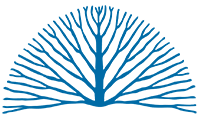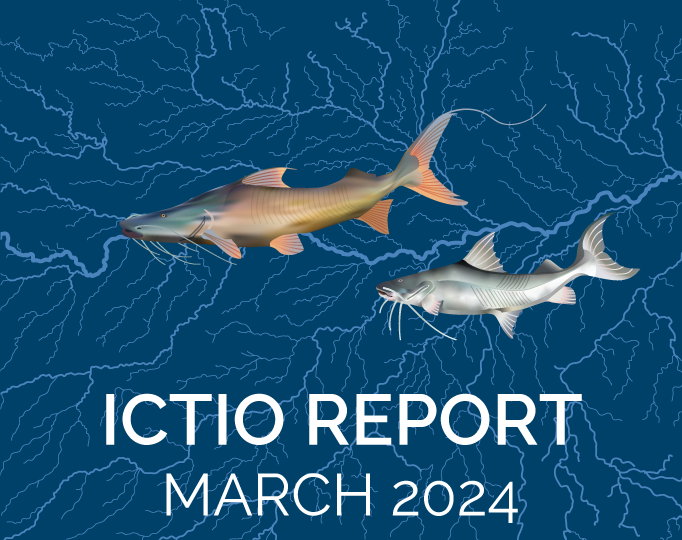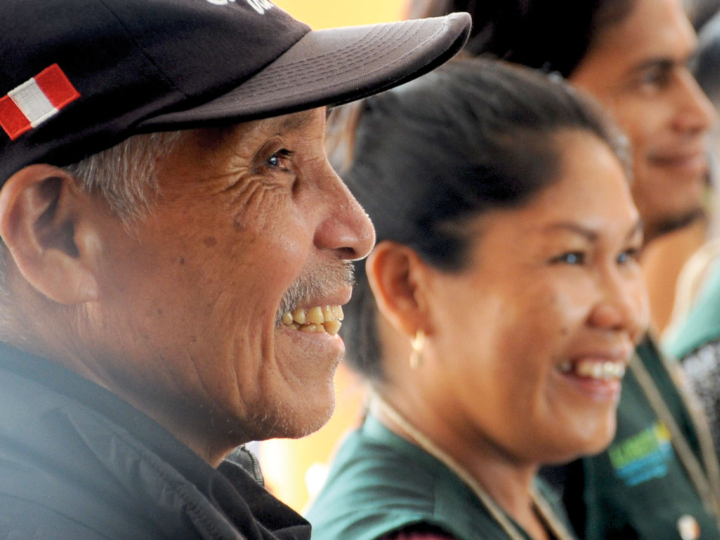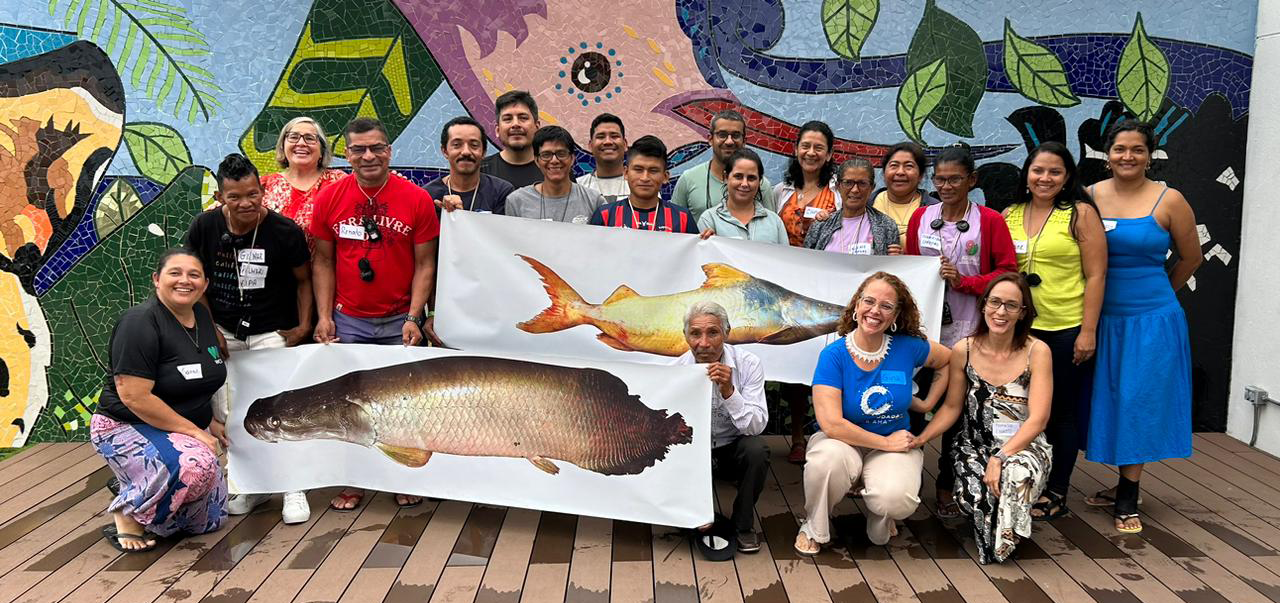
During the “Dialogue of Knowledge: Participatory Fisheries Management in the Amazon,” fishermen, researchers and technicians met to exchange their valuable experiences in fisheries management. Thirteen organizations from eight basins in Ecuador, Brazil and Peru participated in this event that took place during the Congress on Wildlife Management in Latin America, CIMFAUNA, held at Santa Marta, Colombia in November.
The Amazon Waters Alliance promoted this event in collaboration with USAID and WCS. The Dialogue of Knowledge aimed to identify experiences of Participatory Fisheries Management in the Amazon; to understand the strengths, common challenges and the potential for scaling up these good governance practices; to present the experiences to the CIMFAUNA audience; and, define together, themes for upcoming events.
“The goal of this series of meetings -the plan is to organize more events like this one- was to understand ways or methods to scale the management strategies that already exist in the Amazon” said Sannie Brum, Ictio and Amazon Fisheries Specialist for WCS.
The Dialogue of Knowledge allowed the participating local communities and, indigenous peoples to share their realities and solutions. It generated mutual learning of best practices and also discussions on how to approach gender in fisheries.
One of the participants, Evaneide de Souza Costa, from the Associação de Mulheres Agroextrativistas do Médio Juruá (ASMAMJ), commented: “I am very happy to be sharing our work and culture with other people who also contribute to our work”.
Germán Narankas, from the Kaputna Shuar Center in Ecuador, expressed his gratitude by mentioning: “It’s my first time participating in this congress, and I am very happy to bring this experience to my country.”
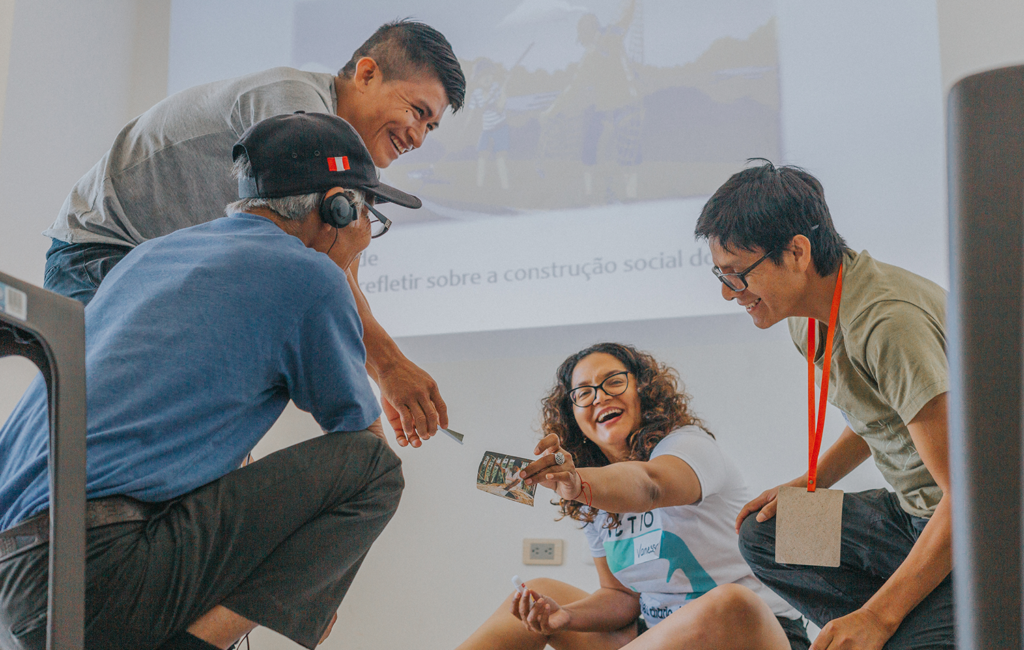
The different perspectives and knowledge shared during the event not only enriched the collective understanding of fisheries management in the Amazon, but also strengthened the ties between the communities participating in the event.
The Amazon Waters Alliance, together with its partners, continues working to promote participatory management practices that benefit both local communities and the fragile Amazon ecosystem.
Below more information on the participants:
Mamirauá Sustainable Development Institute. Médio Solimões, Brazil.
Representative: Ana Cláudia Torres Gonçalves.
The Mamirauá Fisheries Management Program (PMP) has been advising the communities on shared management of pirarucu fish since 1999. In 24 years, they have promoted the conservation of the species and increased income for local families. The experience has been replicated in Brazil and other Amazonian countries where the species is present.
Association of Artisanal Fishermen and Processors Apayacu Manatee and Instituto del Bien Común. Apayacu River, Loreto, Peru.
Representatives: Jorge Avelar, native community of Yanayacu and Vanessa Rodríguez (IBC).
This association of commercial fishermen of the Yagua people, together with IBC, has been developing for 13 years a proposal for fisheries governance in the Apayacu basin. The Fisheries Management Program, PROMAPE Apayacu (for its acronym in Spanish), involves 11 communities and various organizations to preserve hydrobiological resources, focusing on consumer and ornamental species. With 51 families managing 261 hectares, they were able to increase catch sizes and recover the manatee and several fish species.
Association of Agro-Extractivist Women from Médio Juruá (ASMAMJ) and Juruá Institute. Brazil.
Representatives: Evaneide de Souza Costa, Irlene de Figueiredo (ASMAMJ) and Camila Ritter (Juruá Institute).
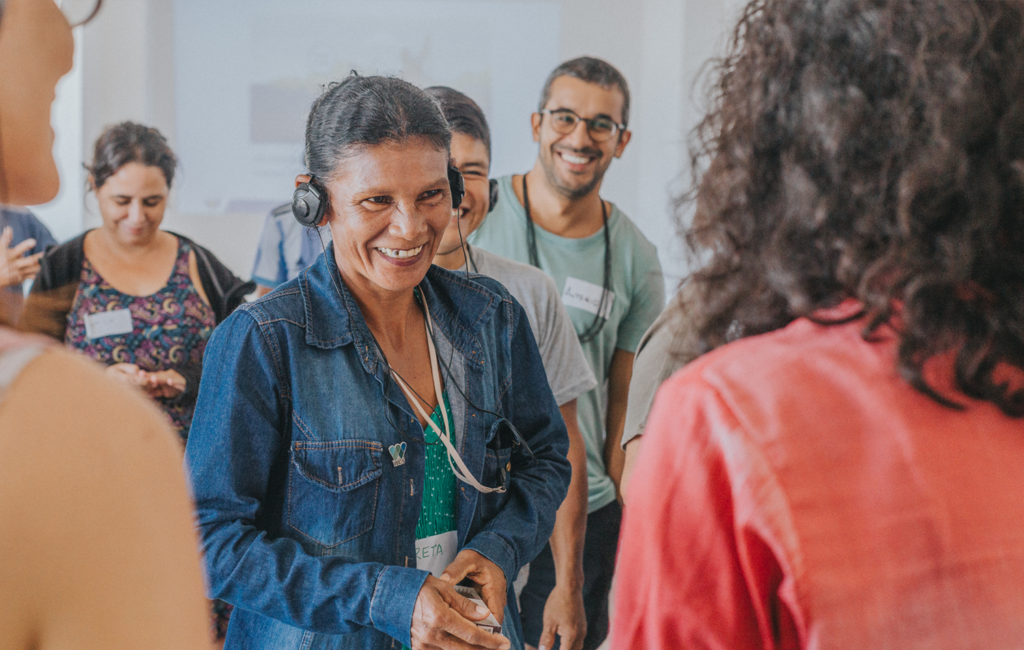
Since 2014 women have assumed the leading role in management and agro extractivism activities in the Médio Juruá Extractivist Reserve. Evaneide and Irlene told how they led sustainable management projects of pirarucu (or paiche) and tambaqui (gamitana).
The area has in place fishing agreements, which are legal instruments that allow the fishermen’s groups to manage their resources.
Indigenous People Association Povo das Águas (AIPA) and Native Amazon Organization (OPAN). Middle Purús. Brazil.
Representative: Gilmar Chagas Cassiano da Silva (AIPA) and Antonio Miranda Neto (OPAN).
The Paumari Indigenous Peoples, inhabitants of the Purús River in Brazil, are pioneers in the adoption of pirarucu fish management in indigenous territories. They built their management plan in 2008 with the support of Operation Native Amazon and managed to recover the populations of the pirarucu, which was at risk in the 1990s. They suspended fishing for five years. Now, the species has recovered and 40 families manage its sustainable fishing in 63 lakes in their territory.
Association of Community Members Working with Sustainable Development in the Municipality of Jutaí (ACJ) and OPAN. Jutaí River. Brazil
Representative: Diomir de Souza Santos (ACJ) and Antonio Miranda Neto (OPAN).
Currently 39 communities are involved in the management and protection of 368 aquatic habitats for the sustainable management of pirarucu fish (paiche). The association was created in 2009 to represent the communities and strengthen their capacities to manage artisanal fisheries. The ACJ is now a key organization in the municipality of Jutaí related to fisheries management.
Fishermen’s Colony Z-42 from Juruti and Sapopema. Pará, Brazil.
Representatives: Renato de Melo Farias (Colônia Z-42) and, Poliane Batista (Sapopema).
In the 1980s, the communities of Juruti initiated a movement for fishing agreements to decide on the use of their lakes. Thus, after a process, the agreements became formal instruments and helped to mitigate fishing conflicts.
Its fishing agreement governs an extensive area of 55,277.56 hectares covering three municipalities: Juruti, Óbidos and Santarém.
Indigenous Peoples of the Shuar Nationality – Shuar Kaputna Center and WCS Ecuador. Santiago River. Ecuador.
Representatives: Germán Narankas (Kaputna Shuar Center) and Fernando Anaguano (WCS).
Five indigenous fishermen and fisherwomen from Kaputna monitor their fish with Ictio, a citizen science platform. They want to know what species inhabit their rivers and aquatic ecosystems, and how mining activities and the construction of hydroelectric plants could affect the species. During a year they sampled seven locations, registering 144 species. It is possible that two species are new to science.
Association of Artisanal Fishermen of the Napo River and WCS Ecuador. Napo River. Ecuador.
Representative: Fernando Anaguano (WCS)
In the city of Coca, Ecuador, a woman leads an association of 23 fishermen and fisherwomen who catch mainly Amazonian catfish. A municipal ordinance establishes that those who exploit fishery resources within the canton of Orellana must contribute to generate knowledge. Therefore, they combine their daily fishing tasks with citizen science, monitoring their catches with the Ictio application. This data contributes to generating information for management of their resources. They also recorded the presence of a species that had not been seen in the Napo River basin.
The goals of the event were achieved. Participants shared their experiences during the four-day event. After identifying their strengths and common challenges, they took all the learning back to their countries with the intention of implementing it and improving their local fisheries management initiatives.
The Dialogue of Knowledge was one of the actions of the Amazon Waters Alliance for strengthening multi-scale fisheries governance. The Alliance brings together 26 organizations, including universities, governmental research institutes and grassroots and civil society organizations from seven countries committed to the conservation and ecosystem integrity of the Amazon Basin.
Press contact
Katy Puga, [email protected]

